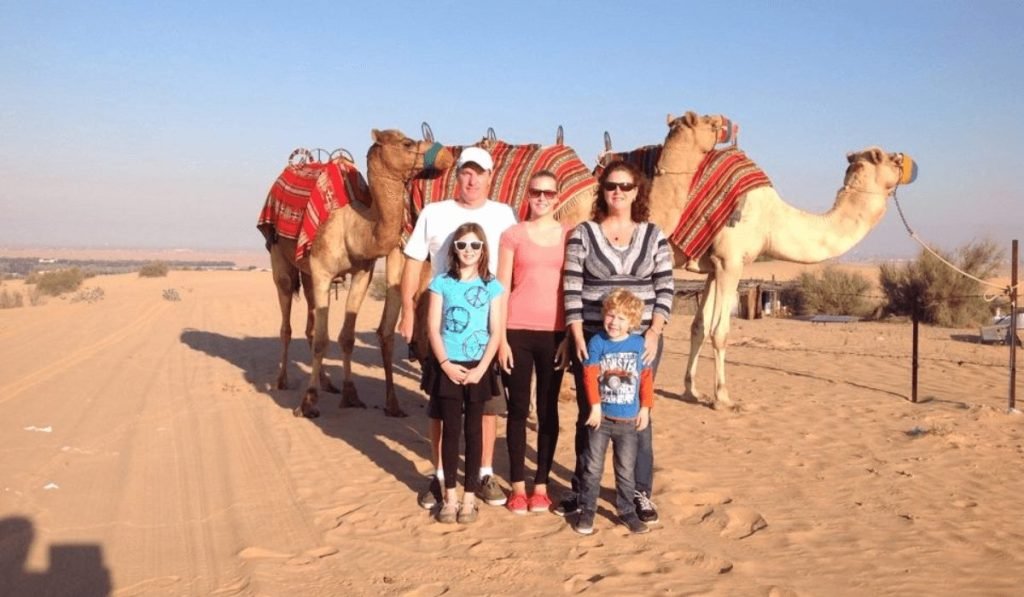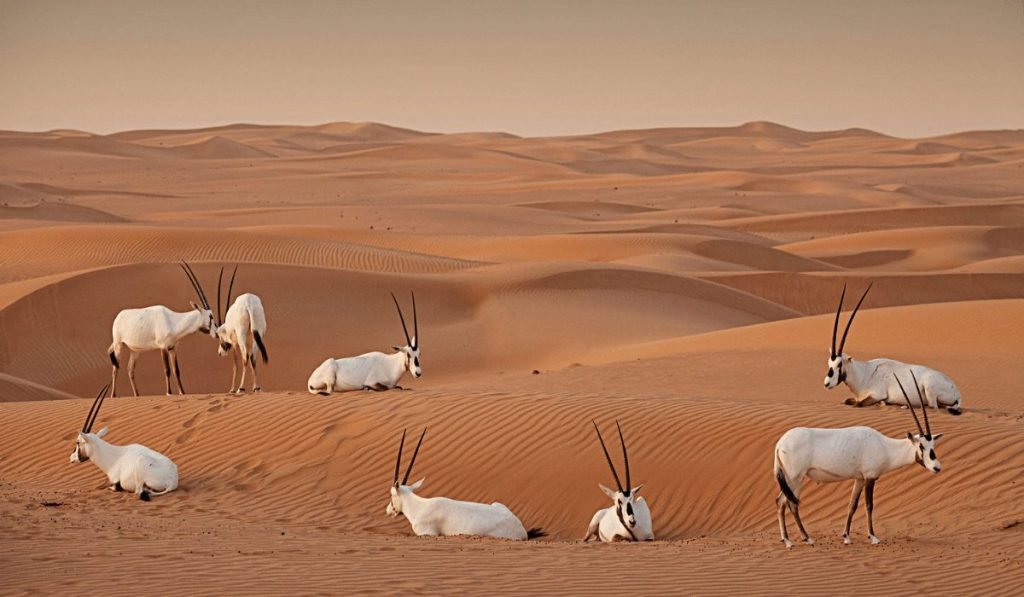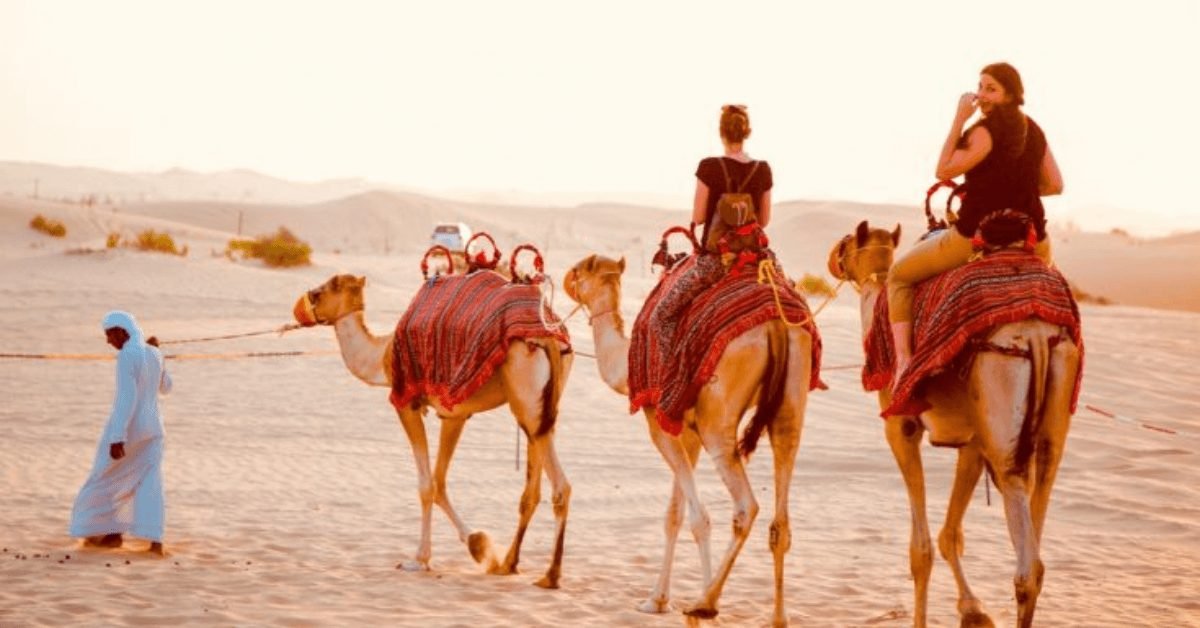Dubai, known for its luxurious skyscrapers and vibrant city life, also boasts a captivating desert landscape. Desert safaris in Dubai have gained significant popularity among tourists seeking adventure and a glimpse into the unique desert ecosystem. What sets these safaris apart is their commitment to sustainable tourism. In this article, we will explore why desert safaris in Dubai promote sustainable tourism and the positive impacts they have on the environment, local communities, and cultural preservation.
The Importance of Sustainable Tourism

Sustainable tourism aims to minimize the negative impact of tourism on the environment while also supporting the well-being of local communities and preserving their cultural heritage. It recognizes the need for responsible travel practices to ensure the longevity of tourist destinations and protect natural resources for future generations. Desert safaris in Dubai align with these principles by implementing sustainable strategies throughout their operations.
Dubai’s Unique Desert Ecosystem

Dubai’s desert ecosystem is a delicate balance of life, featuring stunning landscapes, diverse wildlife, and indigenous plant species. It is a habitat that deserves preservation and protection. The desert safaris in Dubai provide an opportunity for tourists to experience this unique ecosystem firsthand while contributing to its sustainability.
Desert Safaris as Sustainable Tourism
Preserving the Environment
Preserving the environment is a core objective of desert safaris in Dubai. Tour operators adhere to strict guidelines to minimize their ecological footprint. They take measures to prevent habitat destruction, conserve water, and promote responsible waste management practices. By limiting the number of vehicles and ensuring controlled access to sensitive areas, desert safaris help preserve the fragile desert ecosystem.
Supporting Local Communities
Sustainable tourism involves supporting the local communities by creating employment opportunities and empowering them economically. Desert safaris in Dubai work closely with local communities, hiring local guides, drivers, and staff. This approach not only provides livelihoods but also helps preserve the traditional knowledge and cultural heritage of the region. By engaging with local artisans and promoting locally sourced products, desert safaris contribute to the economic growth and social development of these communities.
Educating and Raising Awareness
Desert safaris go beyond entertainment; they also play a crucial role in educating tourists about the importance of environmental conservation and sustainability. Tour guides share insights into the desert ecosystem, highlighting the significance of preserving biodiversity and raising awareness about the challenges faced by arid environments. Through these educational initiatives, desert safaris inspire visitors to become ambassadors of sustainable practices, influencing their behavior even beyond their trip.
Positive Impacts of Desert Safaris
Conservation Efforts
Desert safaris actively contribute to conservation efforts in Dubai. Tour operators collaborate with local conservation organizations to support initiatives such as habitat restoration, endangered species protection, and research programs. By raising funds and involving tourists in conservation activities, these safaris help safeguard the desert ecosystem and its biodiversity for future generations.
Economic Benefits
The tourism industry, including desert safaris, generates substantial economic benefits for Dubai. Revenue from tourist activities is reinvested in local infrastructure development, healthcare, and education. By choosing to participate in desert safaris, tourists contribute directly to the local economy, supporting businesses and fostering economic growth. Moreover, the economic opportunities provided by the tourism industry reduce dependency on unsustainable practices such as excessive fossil fuel extraction.
Cultural Preservation
Dubai’s desert is intertwined with the rich cultural heritage of the region. Desert safaris provide a platform to showcase traditional Bedouin customs, music, and dance forms. By promoting cultural experiences and engaging with local communities, desert safaris aid in the preservation and celebration of Emirati traditions. They support local artisans and craftsmen, ensuring the transmission of traditional skills to future generations.
Responsible Practices in Desert Safaris
Eco-Friendly Transportation
Desert safari operators prioritize eco-friendly transportation options. They employ vehicles that comply with emission standards and use fuel-efficient technologies. Some operators even offer electric or hybrid vehicles, reducing carbon emissions and minimizing their environmental impact. Additionally, carpooling and group tours help optimize transportation resources and reduce the overall carbon footprint.
Waste Management
To maintain the pristine beauty of the desert, waste management is a top priority. Desert safaris enforce strict waste management practices, including recycling and proper disposal of waste. These measures ensure minimal pollution and help keep the desert ecosystem clean and unpolluted. Eco-friendly initiatives such as biodegradable utensils and packaging are also implemented to minimize waste generation.
Respect for Wildlife
Desert safaris prioritize the well-being of wildlife. They operate within designated areas to prevent disruption to natural habitats and respect the behavioral patterns of desert-dwelling animals. Guides educate tourists on the importance of maintaining a safe distance from wildlife and observing them without causing harm or distress. This responsible approach ensures the protection of the desert’s diverse wildlife species.
Conclusion
Desert safaris in Dubai exemplify the principles of sustainable tourism by promoting environmental conservation, supporting local communities, and preserving cultural heritage. Through responsible practices and educational initiatives, these safaris contribute to the long-term sustainability of the desert ecosystem. By participating in a desert safari, tourists not only enjoy an unforgettable adventure but also become active contributors to a more sustainable future. Embracing sustainable tourism in Dubai is a collective effort that ensures the preservation of the desert’s natural and cultural treasures for generations to come.
FAQs
Are desert safaris safe for the environment?
Yes, desert safaris prioritize the safety and preservation of the environment. Operators adhere to strict guidelines to minimize their impact on the fragile desert ecosystem. Measures such as controlled access, waste management, and eco-friendly transportation contribute to their eco-conscious approach.
How do desert safaris contribute to the local economy?
Desert safaris contribute significantly to the local economy by creating employment opportunities and generating revenue. By hiring local guides, drivers, and staff, desert safaris support the livelihoods of communities in Dubai. The revenue generated from tourism activities is reinvested in local infrastructure, healthcare, and education, leading to overall economic growth and development.
What can tourists do to support sustainable tourism in Dubai?
Tourists can support sustainable tourism in Dubai by making conscious choices during their visit. Opting for eco-friendly activities, respecting local cultures and traditions, conserving water, and minimizing waste are some of the ways tourists can contribute to sustainable tourism. By being responsible travelers, they can help preserve the natural and cultural heritage of the region.
Do desert safaris offer educational opportunities?
Yes, desert safaris provide educational opportunities by offering insights into the desert ecosystem, biodiversity, and conservation efforts. Tour guides share knowledge about the unique flora and fauna of the desert, as well as the challenges they face. By learning about the importance of environmental conservation, visitors can become advocates for sustainability in their own communities.

